 The German Revolution of 1917-1919, Part 2: The test of war
The German Revolution of 1917-1919, Part 2: The test of warBy Greg Oxley
In this multi-part article, Greg Oxley looks in depth at the revolutionary period of 1917-1919 in Germany, and draws out some of the key lessons for the workers’ movement today. Part 1 looked at the history of the workers’ movement and the German Social Democratic Party up to the outbreak of the world war. Part 2 looks at the impact of the war on the masses and the ant-capitalist stance taken by Karl Liebknecht and Rosa Luxembourg.
**************
With the following declaration, the leadership of the Social Democratic Party and its parliamentary group affirmed their support for the imperialist war, which began on August 4, 1914: “For our people, much, if not all, would be at stake in the event of a victory of Russian despotism. Our task is to repel this danger, to safeguard the civilisation and the independence of our own country… We will not abandon the homeland at this hour of danger.”
On the same day, Hugo Haase, co-president of the party, announced in the Reichstag that his party would vote for war credits. Hugo Haase, personally, like 13 of the party’s 92 MPs, was not in favour of this decision. But out of collective discipline, everyone, including Karl Liebknecht, voted in the same direction: ten days earlier, the party had organised hundreds of rallies in opposition to the war, including 27 in Berlin. In the party’s declaration, published on the occasion, we read: “The class-conscious proletariat raises an impassioned protest against the machinations of the warmongers. Not a single drop of the blood of German soldiers must be sacrificed to the lust for power of the Austrian ruling clique and the imperialist profiteers.”
Patriotic fervour follows the declaration of war
In the streets, hysterical crowds, seized with patriotic fervour, hunt down “spies” and “internationalists”. When war was announced, the trade unions declared a social truce. There was no question of organising strikes that could compromise the conduct of the war. Up against this wave of patriotic fervour, working-class militants bowed their heads. For many, they had little choice. The arguments justifying the leaders’ about-face weighed heavily on them. If the parliamentary group had refused the war credits, it risked the dissolution of the party and the trade unions, the banning of newspapers, and punitive martial law measures against all leaders and deputies. What would remain, then, of Social Democracy?
For many months, the few oppositional voices in the party – those of Rosa Luxemburg, Karl Liebknecht, Clara Zetkin, Franz Mehring, and a handful of others – met with no response. When Rosa Luxemburg sent 300 telegrams to Social Democratic leaders reputed to be in opposition to the war, asking them to clarify their attitude towards war credits and inviting them to Berlin for an emergency meeting, only Clara Zetkin responded favourably.
The first public announcement of opposition to the war within the Social Democratic Party came in the form of a short paragraph published in a Swiss newspaper in September, saying that this opposition exists but cannot be expressed publicly because of martial law. At the beginning of the war, Karl Liebknecht had agreed to respect the collective discipline of the parliamentary group, because he thought he could continue to defend his ideas within the party. He quickly realised his mistake. The leadership strove to stifle all internal opposition. The editors of Social-Democratic newspapers publishing anti-militarist opinions or even acknowledging the existence of such opinions in the party, were immediately dismissed.
Karl Liebknecht stands firmly against the war

On 2 December 1914, Karl Liebknecht voted against war credits. He made a speech as courageous as it was virulent against the imperialist carnage supported by the party leaders:
“This war, which none of the peoples concerned wanted, did not break out for the well-being of the German people or any other people. It is an imperialist war, a war for capitalist domination of the world market and for the political domination of important countries where industrial and banking capital could be established. From the point of view of the escalation of armaments, it is a preventive war provoked jointly by the German and Austrian war party in the obscurity of semi-absolutism and secret diplomacy. It is also an enterprise of the Bonapartist type, tending to demoralise and destroy the growing workers’ movement. This is what the events of the last few months have demonstrated, with ever-increasing clarity and despite a cynical staging designed to mislead people’s minds. The German slogan “against tsarism” like the English and French slogan “against militarism” has served as a means of mobilising the noblest instincts, traditions, and revolutionary hopes of the people for the benefit of hatred against the peoples. As an accomplice of tsarism, Germany, hitherto a model country of political reaction, has no right to play the role of the liberator of peoples. The liberation of the Russian people, as well as of the German people, must be the work of these peoples themselves. This war is not a defensive war for Germany. Its historical character and the succession of events forbid us to trust a capitalist government when it declares that it is for the defence of the Fatherland that it asks for the credits.”
“A quick peace that humiliates no one, a peace without conquests, that is what must be demanded. All efforts in this direction must be welcomed. Only the continuous and simultaneous affirmation of this will, in all the belligerent countries, will be able to stop the bloody massacre before the complete exhaustion of all the peoples concerned. Only a peace based on the international solidarity of the working class and on the freedom of all peoples can be a lasting peace. It is in this sense that the proletariat of all countries must make a socialist effort for peace, even in the course of this war.”
“I agree to the appropriations in so far as they are requested for work capable of alleviating the existing misery, although I find them notoriously insufficient. I also approve of all that is done to alleviate the harsh fate of our brothers on the battlefields, in favour of the wounded and the sick for whom I feel the most ardent compassion. In this area too, nothing that can be asked for will be too much, in my opinion.”
“But my protest is directed at war, at those who are responsible for it, at those who direct it; it goes to the capitalist policy that gave birth to it; it is directed against the capitalist ends which it pursues, against the plans for annexation, against the violation of the neutrality of Belgium and Luxembourg, against the military dictatorship, against the complete neglect of the social and political duties, of which the government and the ruling classes are guilty, even today. And that is why I am postponing the military appropriations requested.”
Nine months into the war and Rosa Luxemburg carries on the fight from prison
At the time Karl Liebknecht delivers this magnificent speech, its impact seems minimal. But the course of the war and its social consequences would soon produce a profound change in the consciousness of the masses. Already, in the spring of 1915, Rosa Luxemburg could write from her prison cell:
“The scene has changed fundamentally. The six-week march on Paris has assumed the proportions of a world drama. The immense butchery has become a daily affair, exhausting and monotonous, without any solution, in any direction whatsoever, having progressed by so much as an inch. Bourgeois politics is stuck, caught in its own trap: the spirits called forth cannot be laid to rest.”
“No more drunkenness. No more patriotic din in the streets, no more hunting for gilded auto-mobiles; the flurry of phone telegrams; no more talk of fountains contaminated with cholera bacilli, of Russian students throwing bombs on the railway bridges of Berlin, of Frenchmen flying over Nuremberg; no more exuberant crowds sniffing out spies. Gone are the rowdy gatherings in cafes, where people were deafened by music and patriotic songs, the population of a whole city turned into a rabble, ready to denounce people, to molest women. Gone is the climate of ritual crime, the pogrom atmosphere, where the only representative of human dignity was the police officer on the street corner.”
“The show is over. The German scientists, those ‘vacillating lemurs’, have long since gone back into their hole at the sound of the whistle. The noisy joy of the young girls running along the convoys no longer escorts the reserve trains, and the latter no longer greet the crowd by leaning out of the windows of their carriage, a joyful smile on their lips. Silent, their cardboard boxes under their arms, they ramble through streets where sorrowful crowds go about their daily business.” [Junius’ pamphlet, April 1916].
Hundreds of thousands of deaths on the battlefield
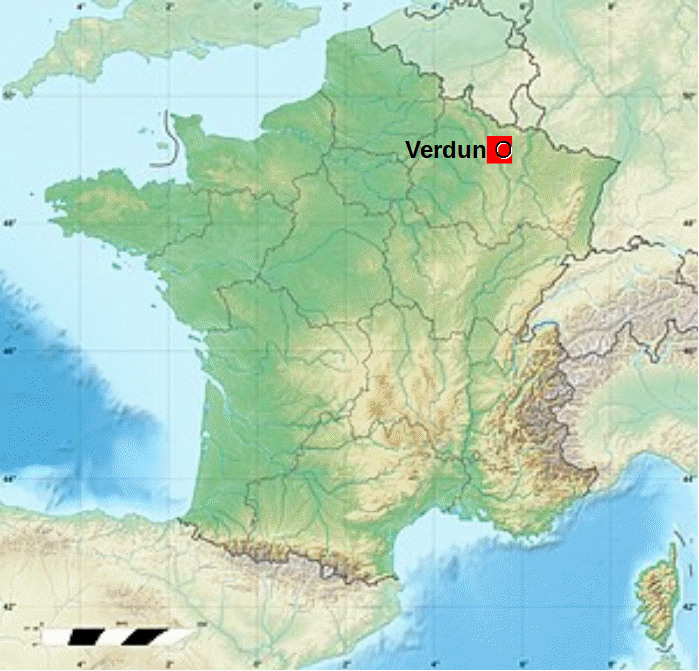
The Battle of Verdun (February 1916 – December 1916) was intended to bleed the French army white. But it also bled the German army, with 337,000 soldiers dead, missing or wounded compared to 362,000 on the French side. The Battle of the Somme (July 1916 – November 1916) was even bloodier. The Brusilov offensive forced Germany to engage on two fronts. Dying en masse for little or no military value, the hellish fate of soldiers at the front went hand in hand with an unbearable deterioration of living conditions throughout Germany.
Von Schlieffen, commander-in-chief of the German armies, had imagined the war would last a few weeks at most. His successor, Von Moltke, did not see it lasting more than two years. The government’s projections about the economic cost of the war were based on a nine-month conflict. But the bogging down of the armies in long-term war had unbearable economic and social consequences. The mobilisation of the peasants disrupted agricultural production. There was not enough food. Weekly rationing allowed for only 1.8 kilos of bread, 225 grams of meat and 85 grams of butter for a worker. By 1916, egg consumption was at only 20% of its pre-war level. During the winter of 1916-17 – the “turnip winter” – “bread” and even “coffee” were made with this miserably tasteless vegetable.
In addition to problems of malnutrition, epidemics and other consequences of mass misery, there was the imposition of martial law in the factories and the palpable erosion of the few democratic freedoms that the workers’ movement had won in the pre-war period.
Big impacts on the composition of the working popuation
The mobilisation of several million workers led to a radical change in the composition of the working population. In 1916, the industrial workforce was made up of 4.7 million men and 4.3 million women. In the Ruhr area, nearly a quarter of all workers were prisoners of war, now transformed into industrial slaves. The deterioration of living conditions and the transformation in the social composition of the working population created a potentially explosive situation. The workers’ organisations were considerably weakened. About 75% of the male Social Democrats were sent to the front. The trade unions lost half of their members and their organisational viability was seriously undermined.
But at the same time, skilled workers were losing the relatively good working conditions they had enjoyed before the war. Rationing impoverished them. They suffered from increasingly rigorous and humiliating industrial discipline. The reorganisation of the division of labour demolished the value and prestige of their skills and qualifications. The differences in living conditions between skilled and unskilled workers were narrowed down.
The radicalisation of the workers’ movement
All workers fell in terms of status and well-being. All of them had to fight to survive. The material foundations of the “moderate” and reformist mentality that characterised the previously “privileged” layers of the working class were swept away. Thus, while the ravages of the war weakened the workers’ organisations, the impoverishment of the skilled workers and the greater exploitation of the unskilled, combined with the impact of the military debacle, led to a revolutionary radicalisation of the German workers’ movement from 1917 onwards.
Part 3 will look at how privations in the war led to increased opposition and ultimately a revolutionary situation.
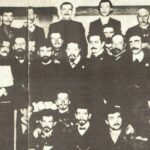 The Russian Revolution of 1905 - This months marks 120 years since the outbreak of revolution in Tsarist Russia. It actually began on January 9 1905, but, as this article shows,
The Russian Revolution of 1905 - This months marks 120 years since the outbreak of revolution in Tsarist Russia. It actually began on January 9 1905, but, as this article shows,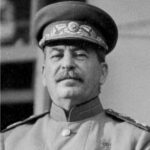 The historical roots of Stalinism - By Greg Oxley Continuing our regular series of articles on theoretical issues, here Greg Oxley editor of the French Marxist website La Riposte, explains the
The historical roots of Stalinism - By Greg Oxley Continuing our regular series of articles on theoretical issues, here Greg Oxley editor of the French Marxist website La Riposte, explains the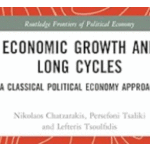 Long cycles - By Michael Roberts I have long been sympathetic to the concept of long cycles in capitalist production and accumulation. This is the idea that capitalist
Long cycles - By Michael Roberts I have long been sympathetic to the concept of long cycles in capitalist production and accumulation. This is the idea that capitalist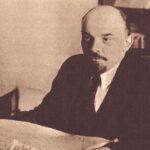 From the archives: Socialism and Religion - by V I Lenin [Editorial note: Introducing what we hope will be a regular series of theoretical articles from the archives of Marxism, this article
From the archives: Socialism and Religion - by V I Lenin [Editorial note: Introducing what we hope will be a regular series of theoretical articles from the archives of Marxism, this article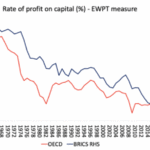 Revisiting the theory of long depressions - By Michael Roberts This post was first published in the Spanish online journal Sin Permiso and is in response to a critique of my long
Revisiting the theory of long depressions - By Michael Roberts This post was first published in the Spanish online journal Sin Permiso and is in response to a critique of my long

